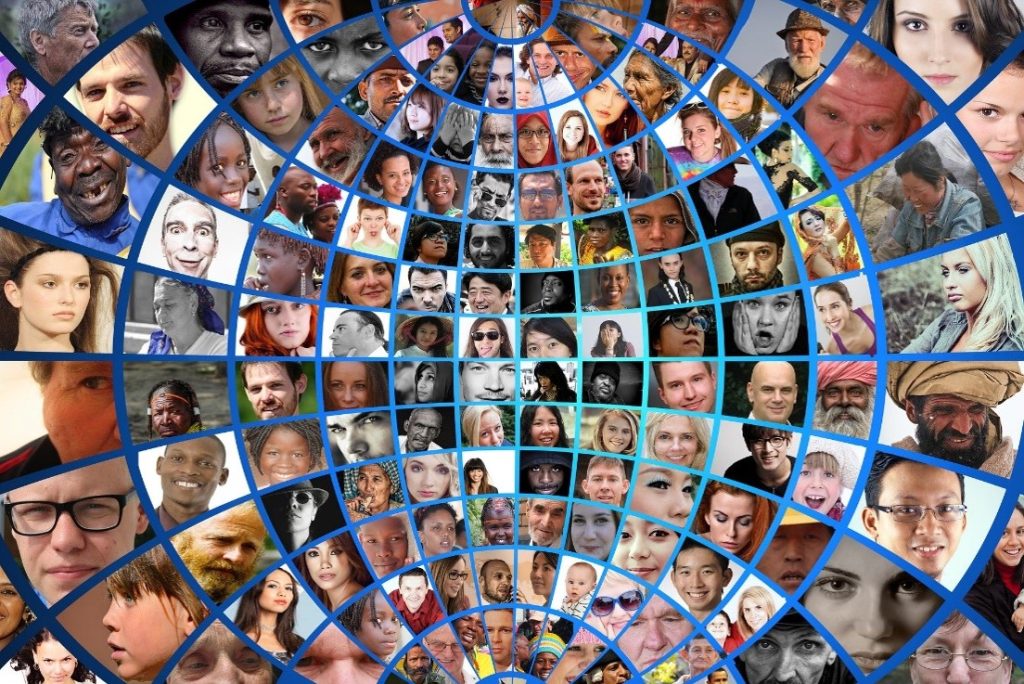LABEL
What the Right to Happiness and the WLRH’s actions can bring to the community
Let’s take two examples. Unhappy persons are twice as sick- so they use twice as many therapies covered by health insurance, they generate twice as much worry for their loved ones.
A happy person is twice as creative- and up to 31% more productive – imagine what it means in terms of GNP, product quality and life for the employee.
Young people have already understood this: they want to choose and do what makes them happy, including in their work. Well-being and satisfaction are no longer enough, they must flourish. To achieve this, new management tools, new management standards such as those proposed by the WLRH, must be put in place. *source Harvard Business Revue 10/1/201
Some results achieved by WLRH-labelled companies
Loyalty and increased productivity, lower recruitment and integration costs for new employees, lower budget replacements for absentees, positive impact on motivation, atmosphere and psychosocial risks, on customers, on employees’ relatives, on the social responsibility of the company.
Harvard experts Ricardo Croati and Erwan Devèze (HBR 10/1/2017) estimate that the profit for companies in France will amount to 60 billion euros. The size of the results varies depending on the activity and size of the business .
Happiness is a factor in economic growth according to U.N. Resolution 65/309 of 2011 and a new way to live as Customer, to enjoy your work and to boost the business. Contact us to know more about the two RTH labels.
« Happiness is no longer a luxury or frivolity, but the factor of global economic growth »
Ban Ki-Moon,
8th U. N. General Secretary
35 experts / 6 Nobel Prize to develop international standards for WLRH labels
That’s why the WLRH has listed the work on this subject of 35 world experts including 6 Nobel, economics, management, cognitive and social sciences, medicine and semantics, among others.
This study identified 14 areas, 7 repositories, management and organizational tools that underpin the good practices of the two international WLRH labels for companies in favor of the right to happiness, one for consumers, the other for employees. Already used by some forty companies in Asia, Europe and the USA, the human, social and financial benefits obtained through these WLRH labels confirm that happiness is the factor of economic growth announced by the UN as early as 2011.

Charu GUPTA CSG International Pvt. Ltd. – Managing Director India
I would like to thank Mrs. Murielle van Boxem and Ms. Babila Focardi of General Sourcing Ltd. for having given me and my company the opportunity to be audited and subsequently certified with the Happiness Label from the World League for the Right to Happiness. It gives me great pleasure and pride to be associated with this label and I am confident that it will benefit my company in many ways. I am sure that our employees will be proud to be working for a company that has been awarded a ‘Happiness Certification’ and will share this pride with their friends and relative. In the same way I believe our overseas customers will also respect us more because they are now certain of working with a company which cares about its employees and customers in so many ways. I trust they will continue to choose our company from other companies because of the added value this label has given to us.
Once again I thank you all and I would like to encourage other companies to go through this audit and certification process in order to understand and correct any potential weaknesses in their operations and then become a part of the distinguished list of « happiness » certified companies
 Mrs. Estelle Prot is the Human Resources and Social Responsibility Director for the Colisee Group (6,900 employees in France, Italy and China.)
Mrs. Estelle Prot is the Human Resources and Social Responsibility Director for the Colisee Group (6,900 employees in France, Italy and China.)
The Happiness Certification is satisfying for everyone, both for employees and for the Executive Committee, and it is completely in line with our values and our core business. Being certified ‘happy’ is a form of recognition for efforts that we do on a daily basis. It brings positive moods, and above all, happiness !
The right to happiness is a goal for the Colisee Group and is part of our ambitious and well established action plan for CSR over the next three years. Furthermore, we are very proud of the results of our internal satisfaction barometer that continues its progression and shows that we are heading in the right direction !

Mrs. Roxane GRECHUSHNA HADES Business Center Monaco
The audit process performed by Ms. Babila Focardi has highlighted the very interesting and positive aspects of the quality of the relationships with our customers, but also served as a useful basis to determine areas of improvement. The happiness certification makes you realize that in a company this element represents an essential added value, and allows the retention of customers who, in turn, make a good publicity.
Thanks to the League for giving us the opportunity to represent the certification with pride through this process.
Jian XUFENG Manager – ZHONGHEYI TRADE CO. LTD Liyang City, Jiangsu Province, China
It is a honour to be amongst the list of companies certified with the HAPPINESS LABEL. Thanks to the diagnosis, we could determine the points which needed to be worked on, in order to improve our relationship with the customer. We can gladly say that ZHY now countries much more attention to its customers, and the customers are happy with the changes we have made.
Happy customers
= happy employees
= happy managers
Happy employees
= happy customers
= happy managers
Happy managers
= happy employees
= happy customers

Scientists and personalities who inspire us
« Since 1974, happiness has become the center of my personal research and I turned to scientists for answers. Thanks to them and to their discoveries, thanks to technology and the evolution of behaviour, the idea of creating the World League for the right to happiness came to me as soon as 2006.
May these researchers and teachers of all nationalities who have inspired and continue to inspire us are here warmly thanked » Murielle van Boxem
- Richard Bach philosopher, writer, USA
- Tal Ben Shahar behaviorist, Harvard ISRAEL
- François Bourguignon Economist, FRANCE
- Jean-Marie Bourre chemistry of the brain, INSERM FRANCE
- Eric Braverman doctor in neuroscience, Princeton, USA
- Alfredo Caycedo Sophrology and states of consciousness Columbia
- Noam Chomsky linguist, University of Pennsylvania, USA
- Deepak Chopra quantum medicine doctor USA
- Sir Angus Deaton Economist, Nobel economics UK
- Edward de Bono lateral thinking Malta
- Antoine de la Garanderie learning, FRANCE
- Baron Desai Economist, London School of Economics, UK
- Ed Diener psychologist, University of Utah, USA
- Luc Ferry philosopher, former Minister of youth and education FRANCE
- Moshe Feldenkrais physicist, ISRAEL
- Jean-Paul Fitoussi Economist linking democracy and development FRANCE
- Heiner Flassbeck Economist, former Secretary of State, UNCTAD, Germany
- Jean Godrey economist specializing in FRANCE
- Renaud Gaucher happiness and policy, Erasmus University FRANCE
- Isaac Getz organizational behavior, released company FRANCE
- Loretta Graziano Breuning PhD neurotransmitters USA
- Sir Peter Richard Grenville Layard London School of Economics UK Economist
- Robert Hogenraad textual, analysis, Catholic University of Leuven Belgium
- Daniel Kahneman psychologist and economist, Nobel Prize, USA
- Laura Kubzansky social sciences and behavior Lee Kum Sheung Center for Health and Happiness USA
- Konrad Lorenz Nobel Prize medicine Austria
- Paul MaCLean doctor in medicine, three in one, brain USA
- Danièle Massobrio-Macchi integrative medicine doctor MONACO
- Melvin Morse Pediatrics and oncologist, University of Washington, USA
- Allan Pease body language and behaviour Australia
- Noëlle Poncelet PhD shamanism and states of consciousness, Belgium
- Pierre Rabhi philosopher-gardner, FRANCE/Algeria
- Benjamin Radcliff Political Science, University of Notre Dame, USA
- Gustav Ranis University of Yale Economist USA
- Léopold Sédar Senghor philosphe-poet, president of the Republic, SENEGAL
- Martin Seligman psychologist, University’s Positive Psychology Center, USA
- Amartya Sen Economist, Harvard, Nobel Prize of economy, India
- Roger Sperry Nobel Prize in neuroscience, USA
- Baron Nicholas Stern London School of Economics , economist specialized in sustainable development, UK
- Frances Julia Stewart former Director of the Centre for Research on Inequality, Human Security and Ethnicity (crisis), University of Oxford and president of the Human Development and Capability Association UK
- Joseph Stiglitz Economist, Columbia Nobel Prize of economy, USA Golden Clover 2017
- Mahbub ul Haq economist and Director of the Human Development Reports Office of the United Nations Development Program (UNDP) PAKISTAN
- Ruut Veenhoven Erasmus University, World Database of Happiness NETHERLAND
- Peter Watzlawick change management, school of Paolo Alto, USA
